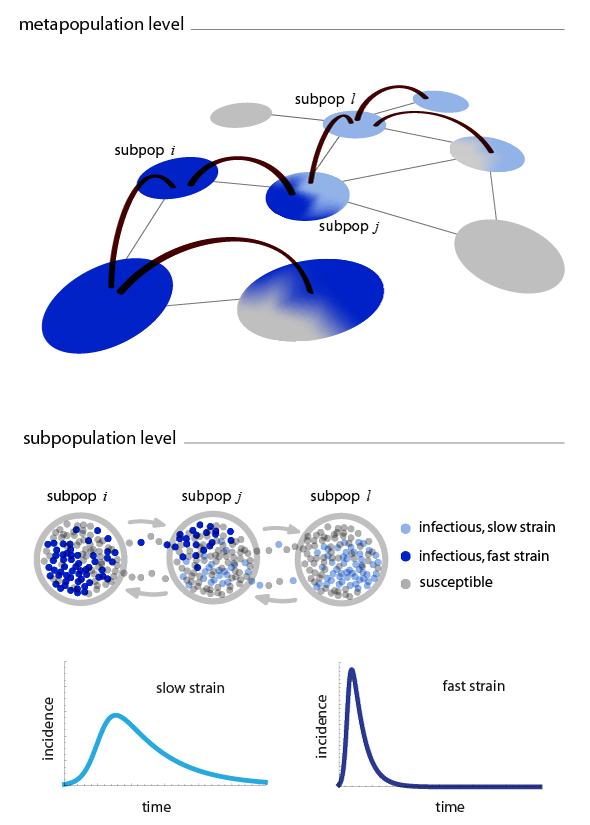Epidemiology
Classical Epidemiology Multi-scale Diseases Tuberculosis (TB) Spreading Gripenet.es (Sp. Version)Classical Epidemiology
The study of complex networks sheds light on the relation between the structure and function of complex systems. One remarkable result is the absence of an epidemic threshold in infinite-size scale-free networks, which implies that any infection will perpetually propagate regardless of the spreading rate. Our group has been studying epidemic spreading processes on top of complex networks since the very beginning of modern approaches to the problem. Among other results, we have studied the SIR and SIS models on heterogeneous and homogeneous networks, both when they are uncorrelated or correlated, as well as different immunization strategies to contain the spreading of a disease. Recently, we have also addressed the same problem, but taking into account that infections are not always transmitted as a reaction process from nodes to all neighbors.
In particular, we have shown that in such situations, the epidemic incidence is shaped by traffic flow conditions and that the epidemic threshold in scale-free networks depends on the first and second moments of the betweenness distribution given a routing protocol. Finally, we have also proposed a model specially suited for persistent infections like TB, where one is constrained to work with an open system. Current research are directed towards the development of metapopulation models that explicitly take into account mobility patterns and human behavioral responses in front of an epidemic outbreak.

Find out more by checking our main publications at: MAIN PUBLICATIONS

